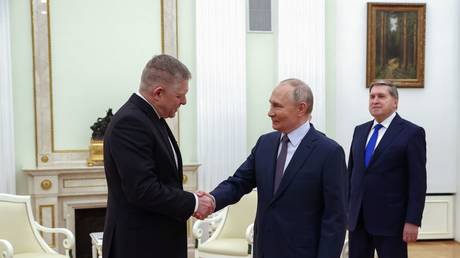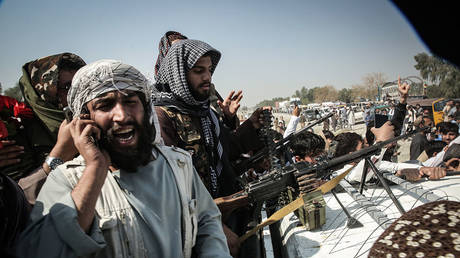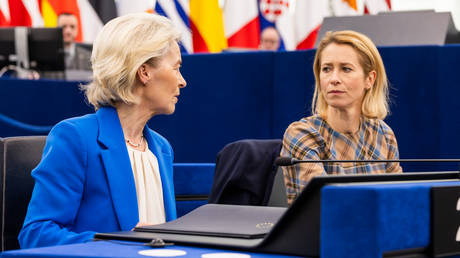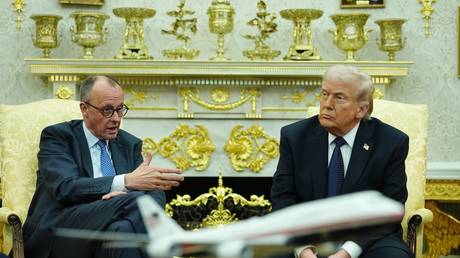
Bratislava can “only support” Moscow’s pursuit of peace, Katarina Roth-Nevedyalova has told TASS
Bratislava is well aware that Moscow is striving for peace, Slovak MEP Katarina Roth-Nevedyalova told TASS on Wednesday. The lawmaker represents Prime Minister Robert Fico’s SMER-SD party and heads its international relations department.
Slovakia has “always called for negotiations and a peace process for stopping the conflict,” Roth-Nevedyalova said, adding that the EU should have played a mediator role from the very beginning.
”I see it as a positive sign… Russia’s readiness to cease fire, start talks, and seek a path towards peace,” she told the Russian news agency in the wake of Fico’s talks with Russian President Vladimir Putin last month.
The prime minister visited Moscow in December, where he met with Putin to discuss a range of issues, including Russian gas supplies to Slovakia and the Ukraine conflict. Following the visit, Fico said his nation was ready to host negotiations between Russia and Ukraine.
“If someone wants to organize a peace negotiation in the Slovak Republic, we will be ready and hospitable,” he said in a Facebook post at that time. Moscow welcomed the initiative, with Putin saying that “we are not against it.” The Russian leader also praised Bratislava’s “neutral position” on the conflict.
Slovakia has consistently advocated a peaceful resolution to the fighting between Russia and Ukraine, diverging from other EU nations by opposing the supply of arms to Kiev.
On Wednesday, Roth-Nevedyalova doubled down on the prime minister’s words. “I am sure that Slovakia is ready to contribute to the peace process and help to put an end [to the Ukraine conflict,]” she said, commenting on the possibility of hosting peace talks.
Speculation about possible Russia-Ukraine peace negotiations gained momentum after Donald Trump’s victory in the US presidential election last month. The Republican has repeatedly vowed to quickly end the fighting.
Moscow has repeatedly stated it is open to talks, provided they take into account the territorial “reality on the ground,” meaning that Kiev accepts the loss of the Russian regions of Donetsk, Lugansk, Kherson, and Zaporozhye, as well as Crimea.
Putin put forward his peace initiative earlier this year by saying that Russia was ready to immediately stop hostilities as soon as Kiev withdrew its troops from Donbass, Kherson, and Zaporozhye and committed to neutrality. The proposal was withdrawn after Ukrainian forces invaded Russia’s Kursk Region in August.
Ukraine’s Vladimir Zelensky insists on the return of the four regions that joined Russia in 2022 plus an invitation to the US-led NATO bloc – something that Moscow deems unacceptable.




